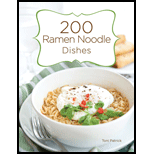Organic Chemistry book material has been updated to reflect advances in the field. Organic chemistry is more than simply the study of carbon or the study of chemicals in living organisms. Take a look at what organic chemistry is, why it is important, and what organic chemists do. This book has constantly tried to assist the students in learning reaction mechanisms considering a broad coverage of important aspects of mechanistic techniques. It has been extensively used as a text for the last thirty years by both graduate and postgraduate level students. Organic reactions are chemical reactions involving organic compounds. The basic organic chemistry reaction types are addition reactions, elimination reactions, substitution reactions, pericyclic reactions, rearrangement reactions, photochemical reactions and redox reactions. In organic synthesis, organic reactions are used in the construction of new organic molecules. The production of many man-made chemicals such as drugs, plastics, food additives, fabrics depend on organic reactions. This book provides the chemical community with authoritative and critical assessments of the many aspects of reaction mechanisms in organic chemistry. Contents: Organic Chemical Reactions; Mechanisms of Organic Reactions; Organic Chemistry and Molecules; Organic Structure and Bonding; Classification of Organic Compounds; Organic Compounds and Polymers; IUPAC Nomenclature of Organic Chemistry; Electronic Structure and Atomic Orbital; Lewis Structures of Atoms and Molecules.





















